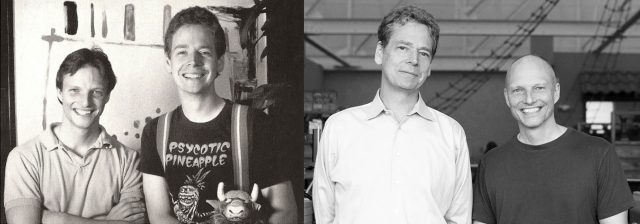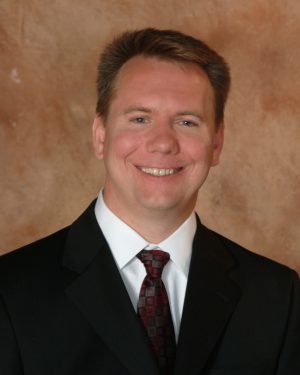![Star Control countersuit aims to invalidate Stardock’s trademarks [Updated]](https://cdn.arstechnica.net/wp-content/uploads/2018/02/scsc-800x423.jpg)
Updated at 15:30 EST with a response from Brad Wardell and Stardock. See the "Law talking" section near the end.
This morning, original Star Control creators Fred Ford and Paul Reiche III filed a response to Stardock’s Star Control lawsuit, which seeks injunctions and damages against Ford and Reiche for, among other things, alleged willful and intentional trademark infringement and trademark counterfeiting. Ford and Reiche also filed a countersuit against Stardock seeking their own injunctions and damages. The response and counterclaim can be viewed here and here respectively. Stardock's original filing is over here.
The filings are the latest escalation in what is turning into a deeply acrimonious legal battle over who possesses the rights to publish and sell the classic Star Control trilogy of video games—and who has the rights to create new Star Control games. (Or at least who can name their games "Star Control.")
It’s a twisted tale, and understanding what is going on requires digging back through 30 years of agreements and contracts involving companies that no longer exist. It’s not quite as screwed up as the situation around No One Lives Forever, but it is a hot mess—and now that litigation is starting, things stand to get a lot messier.
How we got here
We’ve written quite a bit about the efforts of developer/publisher Stardock to revive the long-dormant Star Control series of classic space adventure RPGs—most recently in October, when Ars Senior Reviews Editor Samuel Axon spoke with Stardock CEO Brad Wardell about the state of the studio’s upcoming title, Star Control: Origins. After a drought lasting a quarter-century, Stardock appeared to be our last, best hope for a real return to one of gaming’s most beloved universes.
The company was able to start development because it claims it acquired the rights to use the “Star Control” trademark (along with “all of Accolade's publishing rights for the original trilogy” and “all code and assets for Star Control 3,” per an email from Brad Wardell) from Atari back in 2013 in a bankruptcy sale. Stardock's contention—and Atari's, as near as we can tell—is that Atari inherited the rights to the name “Star Control” when it acquired the games’ original publisher Accolade in 1999. Indeed, in buying the “Star Control” trademark, Stardock was able to succeed where Ford and Reiche had previously been unsuccessful—their inability to convince Atari to let them use the trademark was why the 2002 open source re-release of Star Control II wasn’t formally named Star Control II.Stardock was happily producing its game, and it appeared that things would proceed without drama. But then something crazy happened—something that even the most jaded observers had stopped hoping for. Around the time of our interview with Wardell in October, original Star Control creators Fred Ford and Paul Reiche III posted an entry on their blog saying that they were finally ready to take back their franchise with their own new Star Control game, titled Ghosts of the Precursors.

Wardell and Stardock weren’t happy, and Stardock alleged that Ford and Reiche were piggybacking on Stardock’s own publicity with their game announcement. For their part, Ford and Reiche were unhappy that Stardock was selling the classic Star Control games on Steam, alleging that Stardock’s Atari purchases in fact didn’t include the rights to sell Star Control and that instead only GOG had the correct rights in hand to sell the games—further, Ford and Reiche now state that Stardock couldn't have purchased what it says it purchased, because Ford and Reiche owned the relevant copyrights.

Previously, there had appeared to be nothing but bonhomie between Wardell, Ford, and Reiche. The latter pair had spent the past several years busily creating Skylander games at their studio, Toys For Bob; when Wardell was asked about whether or not the duo was involved in Stardock’s new Star Control game, Wardell repeatedly and on multiple occasions indicated to Ars that Stardock was keeping Ford and Reiche at least informed about the game’s progress, even though Ford and Reiche had elected not to participate in development. Further, on at least two phone interviews this author conducted with Wardell, Wardell indicated that he had nothing but respect for Ford and Reiche and wanted his studio’s game to fit snugly in the Star Control universe in a way that would make fans happy—both from a perspective of story and also the overall feel.
In reality, Ford and Reiche appear to have been apathetic at best about Stardock’s game, and they say they declined repeated requests by Wardell to collaborate. Ford and Reiche tell Ars that they had always intended to return to the Star Control universe and wanted to keep all possible options open, and now is the time they've chosen to make that return.
A boy named sue
The rhetorical knives were well and truly unsheathed when Stardock formally filed suit against Ford and Reiche on December 8, 2017. The company’s complaint goes all the way back to 1988 to set the stage, describing the genesis of the Star Control games, and then quickly begins to level accusations that start out damning and then turn bizarre.
Before we start digging through the specifics, here are Stardock’s main allegations against Ford and Reiche:
- That Stardock, by virtue of owning the "Star Control" trademark, is due all of the "fame, reputation, and goodwill" directed by fans toward the Star Control games
- That Ford and Reiche want to associate their game, Ghosts of the Precursors, with that "fame, reputation and goodwill," as well as the "fame, reputation, and goodwill" generated by Stardock around Stardock's selling the Star Control games and around the development of Stardock's upcoming Star Control: Origins title
- That Ford and Reiche are willfully infringing Stardock's "Star Control" trademark by marketing their own game as a "direct sequel" to Star Control 2
- That Ford and Reiche are willfully infringing Stardock's trademark by the use of old Star Control cover art on Ford and Reiche's Twitter accounts and on their website
- That Ford and Reiche refused to stop selling Star Control titles on GOG in violation of Stardock's trademarks and copyrights
- That Ford and Reiche have indicated they are knowingly violating Stardock's trademarks and copyrights and that they have expressed an intention to continue doing so
- That Ford and Reiche are purposefully trying to delegitimize and jeopardize Stardock's upcoming game, Origins
- That Ford and Reiche are purposefully trying to create confusion in the minds of prospective consumers over who owns "Star Control"
…and several other related allegations having to do with trademark and copyright infringement.
However, one of Stardock’s primary talking points—one the company returns to more than once in its complaint—made us pause and do an actual double-take, because it appeared to contradict reality: Stardock alleges that Ford and Paul are not the creators of Star Control at all.
This argument starts small, in paragraph 11 of the complaint, which states, “Reiche and/or Ford contend that he/they contributed certain undefined material and/or programming to Star Control I, in collaboration with numerous other authors and contributors, to assist Accolade in the development of the game.” But things take a left turn in paragraph 49:
However, Reiche or Ford’s advertising that they are the “Creators of Star Control” is false. As Reiche and Ford know, it was Accolade, not them that created Star Control I and Star Control II. Upon information and belief, any authorship that Reiche and Ford may have contributed to the Classic Star Control Games was limited, and it was instead a team of many other authors, including numerous artists, animators, musicians, designers and writers, among others, that collaborated together to develop creatives used in Star Control I and II.
This is Stardock formally alleging that the developers of Star Control and Star Control II weren’t the developers of Star Control and Star Control II and that the games were instead created by “a team of many other authors.”
The next two paragraphs cement the claim:
Upon information and belief, and contrary to the common public understanding and what they have portrayed to the public, Reiche and Ford may not have created any of the artwork, animation or characters incorporated in the games, or otherwise substantially contributed to the authorship of Star Control I and Star Control II.
Reiche and Ford’s advertising themselves as being the “creators” of the Classic Star Control Games is false and misleading, and has been made in an attempt to dishonestly benefit from the goodwill and reputation associated with the STAR CONTROL Mark to which they have never had rights.
So that was where we left things—with one company not only claiming it owns the franchise, but that the franchise’s creators weren’t actually its creators. As might be expected, Ford and Reiche vocally and thoroughly reject Stardock's assertion in their response.
reader comments
157